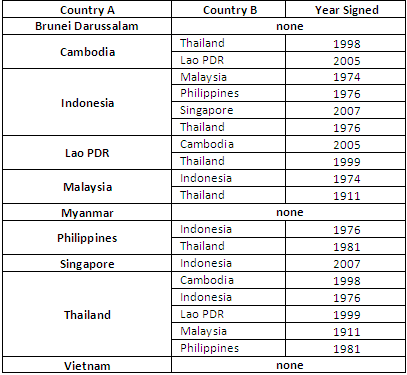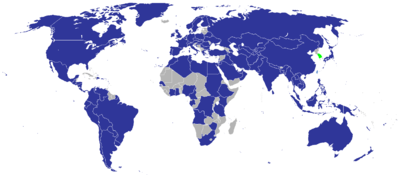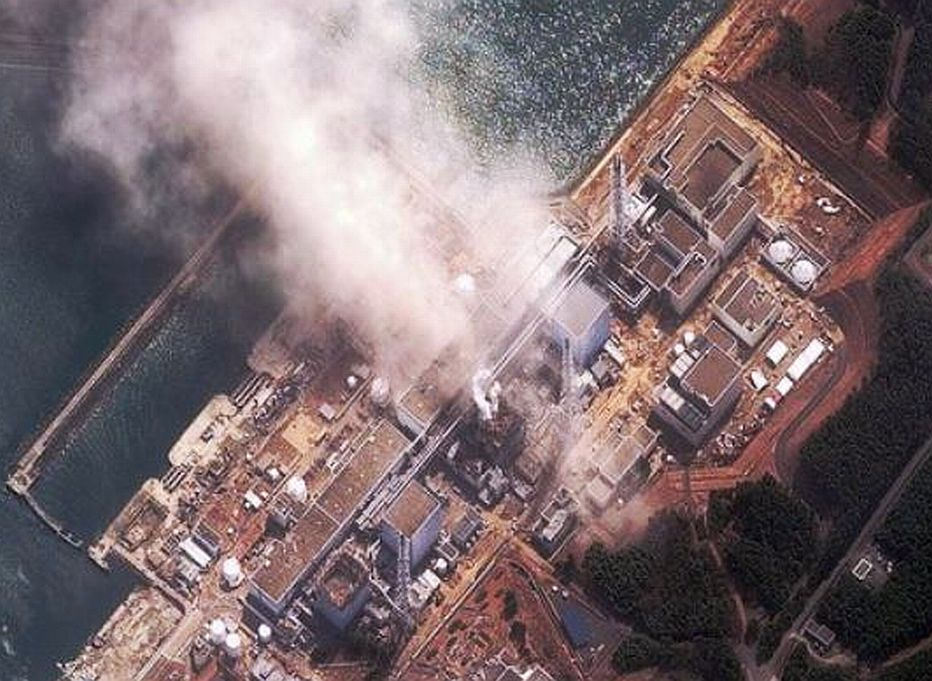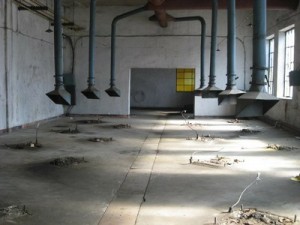Special Reports are longer, often more technical, documents consisting of entire articles, government statements, and other documents relevant to security and peace in Northeast Asia.
A Code of Conduct for Transfer of Nuclear Power Plant Technology to Consumer Countries
This report by Gordon Thompson outlines a code of conduct for transfer of nuclear power plant (NPP) technology to consumer countries. The term “consumer” is used here to refer to a country that is a party to the Nuclear Non-Proliferation Treaty (NPT) and has not developed an indigenous capability to design or manufacture the major components of an NPP. The code outlined here would apply to the transfer of Generation III nuclear power plant technology during the next few decades. Relevant items of technology would pertain to light-water reactors or CANDU reactors. Before outlining the content of a potential code, this report provides background regarding codes of conduct, sustainability, and trends in the use of nuclear power. It then discusses ten issue areas for a code of conduct, and outlines a process for constructing a code that accounts for each issue area.
Go to the articleRegional Responses to Extra-Territoriality and Non-State Nuclear Actors: A Perspective From Southeast Asia

Raymund Jose G. Quilop, Associate Professor of Political Science at the University of the Philippines
and Secretary of the Philippine Political Science Association, writes “In making Southeast Asian states more receptive to the practice of extraterritoriality particularly in regard to preventing non-state actors from having access to WMD, it would be helpful to fully utilize existing mechanisms for exchanging information including the numerous platforms that bring together leaders, foreign and defense officials as well as making existing treaties such as the SEANWFZ adapt to the changed regional environment where nuclear proliferation is no longer solely the result of state action but involves non-state actors too. Indeed, the complexity of the challenge of terrorism is eventually pushing governments to become more receptive to the idea of working together, not merely in having their efforts coordinated but in finding ways to collaborate with one another.”
Go to the articleBeyond the Nuclear Umbrella: Re-Thinking the Theory and Practice of Nuclear Extended Deterrence in East Asia and the Pacific
Peter Hayes, Professor, RMIT University and Executive Director of the Nautilus Institute, and Richard Tanter, Nautilus Institute Senior Associate, provide an overview of the Nautilus Institute’s exploration of two inter-linked but highly contested aspects of the strategic nuclear situation on the Korean peninsula: the complexity and uncertainty associated with United States assurances of nuclear extended deterrence to South Korea (and Japan), and the potential contribution a nuclear weapon free zone to shifting the current impasse concerning North Korean nuclear weapons.
Go to the articleNorth-South Korean Elements of National Power

Peter Hayes, Professor, RMIT University and Executive Director of the Nautilus Institute, writes, “In this Special Report, we compare and contrast six elements that constitute national power for the ROK and the DPRK. These are: Diplomacy and international relations, Military power, Economic power, Governance and internal security, Social development, Perceptions of future prospects—internal and external to the two Koreas. This comparison demonstrates that the ROK has achieved overwhelming superiority in every dimension of national power, especially in conventional military power. ”
Go to the articleTracking Nuclear Capable Individuals
André Buys, Professor in the Department of Engineering and Technology Management at the University of Pretoria, South Africa, writes, “Many … non-state actors have knowledge, skills or capabilities of proliferation concern – as shown in the South African case with the Khan network. This case also highlights the fact that nuclear non-proliferations laws and regulations are necessary, but not sufficient, to prevent illegal nuclear trade … National registration for Defense export control appears to be a general practice in many countries and a very preliminary survey suggests that some countries might already have registers of nuclear capable individuals and organizations. Such information can therefore be used to track and monitor the activities of these individuals and organizations. The IAEA safeguards could be strengthened by requiring of states to submit their national information to an international register of nuclear capable individuals and organizations maintained and used by the IAEA.”
Go to the articleThe Path from Fukushima: Short and Medium-term Impacts of the Reactor Damage Caused by the Japan Earthquake and Tsunami on Japan’s Electricity Systems

David von Hippel, Nautilus Institute Senior Associate, and Kae Takase, Director of Governance Design Laboratory in Japan, note that reconstruction of the Japanese energy sector using renewable energy and energy efficiency technology will be cheaper, faster, cleaner, and more resilient than traditional thermal and nuclear power plants.
Read the report.
Read the Executive Summary.
Go to the articleAfter the Deluge: Short and Medium-term Impacts of the Reactor Damage Caused by the Japan Earthquake and Tsunami
The Nautilus Institute released this
report as a rapid response evaluation of the implications of the March 11, 2011
earthquake and consequent tsunami off the northeast coast of Japan, focusing on
Japan’s electricity system, its energy security and the future of the nuclear
power plants located in the earthquake- and tsunami-affected regions.
Read the executive summary.
Go to the articleStatus and Future of the North Korean Minerals Sector
Edward Yoon, an accountant and expert in the North Korean resource development sector, writes, “The mining subsector of the DPRK’s industry accounted 8.3% of the North Korean GDP and about 15.9% of total export revenues in 2005. The minerals production sector in North Korea has, however, been struggling because of poor central planning and a lack of modern technology and equipment, as well as a shortage of electricity … Based on a study conducted by Chung, Woo Jin, exploitation of the DPRK’s mineral resources through linkages with South Korean and overseas consumer markets is likely to be the most profitable way for the DPRK to develop its minerals sector. Strong markets for the DPRK’s gold, silver, lead, iron ore, zinc, Tungsten, copper, and other metallic minerals are likely. In additions, among the DPRK’s non-metallic minerals, magnetite, flaky graphite, and limestone are valuable products.”
Read a response from Aidan Foster-Carter here.
Go to the articleDPRK “Collapse” Pathways: Implications for the Energy Sector and for Strategies Redevelopment/Support

Peter Hayes, Executive Director of the Nautilus Institute, and David von Hippel, Nautilus Institute Senior Associate, write, “Whether precipitated by war, coup, or simply continuing slow economic decline, it is incumbent on the international community to help to provide services and support to stabilize North Korea in the unlikely event of outright collapse. Fortunately, many of the measures that would be needed are the same as should be undertaken in the non-collapse pathways. Among the many likely needs of the North Korean population following a collapse—food, clean water, heath care, and economic development among them—the need to promptly provide the population with reliable and demonstrably improving access to energy services (heat, light, mechanized transportation, and so on) will be a key to stabilizing the country, meeting other post-collapse needs, and readying the North for eventual smooth (one hopes) integration with South Korea.”
Read a response from Aidan Foster-Carter here.
Go to the articleEngaging the DPRK Enrichment and Small LWR Program: What Would It Take?

Peter Hayes, Executive Director of the Nautilus Institute, and David von Hippel, Nautilus Institute Senior Associate, write, “it may be possible to slow and even reverse the DPRK’s nuclear breakout by collaboration that assists it to develop small light water reactors (LWRs) that are safe, reliable, and above all, safeguarded, and integrates its enrichment capacity into a regional enrichment consortium, possibly as part of a Northeast Asian Nuclear Weapon Free Zone.”
Go to the article
